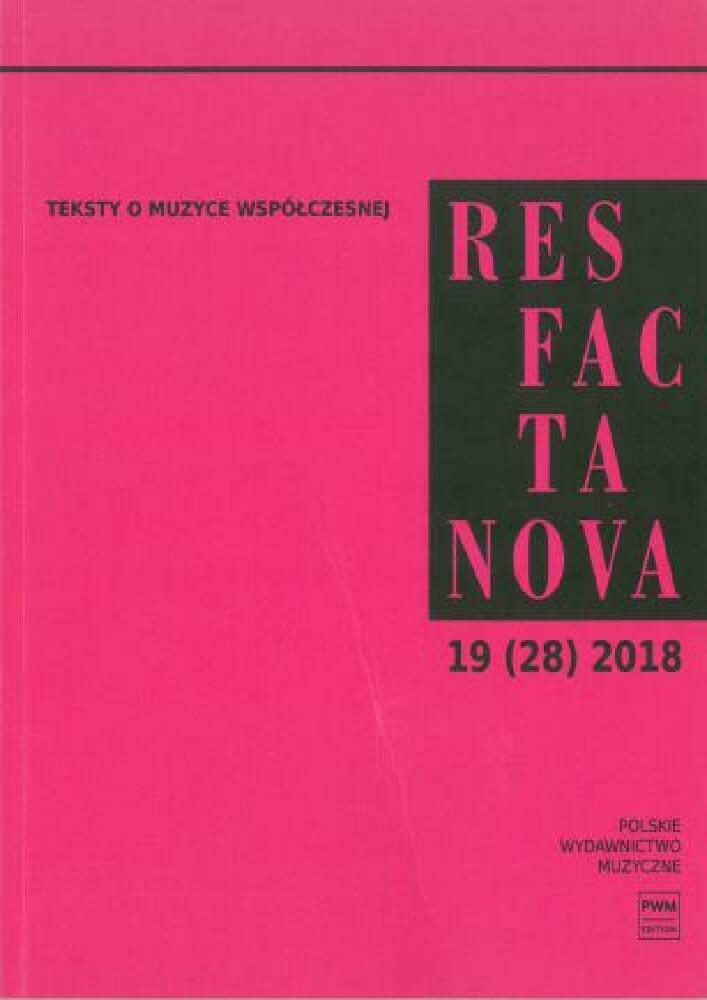Abstrakt
The title issue of this article is preceded by reflections on the problem of perception as such, taking into account the perspective of the author’s creative and pedagogical experiences. The examples of perception problems of music-educated students, especially as part of the process of developing the auditory intellect (hearing education), are the bases of the introduced hypotheses and attempts to diagnose the problem. One of the theses in this article is that the consciousness and knowledge of the mechanisms of perceptual hearing (both its possibilities and limitations) should accompany the creator of the musical creation. There is also an attempt to answer the question who the composer and who their listener is today. The distinction between the “composing creator” and the “creating creator” is emphasized. Attention is drawn to the problems of the perception of a contemporary work; listeners’ habits, resulting from knowledge limitation and lack of development of the so called “cognitive attention”, limit the acceptance of new aesthetic and technical attitudes. The “perception shock” caused by the inflow of unknown information does not allow the strategy to organize the visual or auditory scene into a logical whole. The emergence of new sound qualities and their new aesthetic categorization (melodies of colors, melodies of textures, harmonies of colors, etc., and a new approach to time and space) in the 20th and 21st century music, requires “guiding the listener on the new sound stage” and opening them to appropriate perceptual strategies.
Witold Lutosławski’s work – in the context of his philosophy of creation, becomes a unique example of inviting the listener to the perception game, which is based, above all, on the composer’s desire to meet his audience in a deep aesthetic experience.
Bibliografia
Bregman Albert S., Auditory Scene Analysis. The Perceptual Organization of Sound, MIT Press, Cambridge, Mass. 1990.
Homma Martina, Studia Lutosławskiego nad seriami dwunastotonowymi, [w:] Estetyka i styl twórczości Witolda Lutosławskiego, red. Zbigniew Skowron, Musica Iagellonica, Kraków 2000.
Ingarden Roman, Utwór muzyczny i sprawa jego tożsamości, Polskie Wydawnictwo Muzyczne, Kraków 1973.
Klawiter Andrzej, Elementy kognitywistycznej koncepcji słyszenia, [w:] Mózg i jego umysły, red. Wioletta Dziarnowska, Andrzej Klawiter, Wydawnictwo Zysk i S-ka, Poznań 2006, s. 27–36.
Lutosławski Witold, Muzyka to nie tylko dźwięki. Rozmowy z Witoldem Lutosławskim, przeprowadziła Irina Nikolska, Instytut Adama Mickiewicza, Polskie Wydawnictwo Muzyczne, Warszawa–Kraków 2003.
Lutosławski Witold, Zapiski , opr. Zbigniew Skowron, Towarzystwo im. W. Lutosławskiego, Wydawnictwa Uniwersytetu Warszawskiego, Warszawa 2008.
Winckel Fritz, Osobliwości słyszenia muzycznego, przeł. Józef Patkowski, Krzysztof Szlifirski, Państwowe Wydawnictwo Naukowe, Warszawa 1965.
Zawadzka-Gołosz Anna, Momenty „nieważne” w muzyce Witolda Lutosławskiego, [w:] Witold Lutosławski i jego wkład do kultury muzycznej XX w., red. Jadwiga Paja-Stach, Musica Iagellonica, Kraków 2005.
Zawadzka-Gołosz Anna, O komponowaniu percepcji. Casus Witolda Lutosławskiego, „Teoria Muzyki” 2013 nr 3, s. 63–77.
